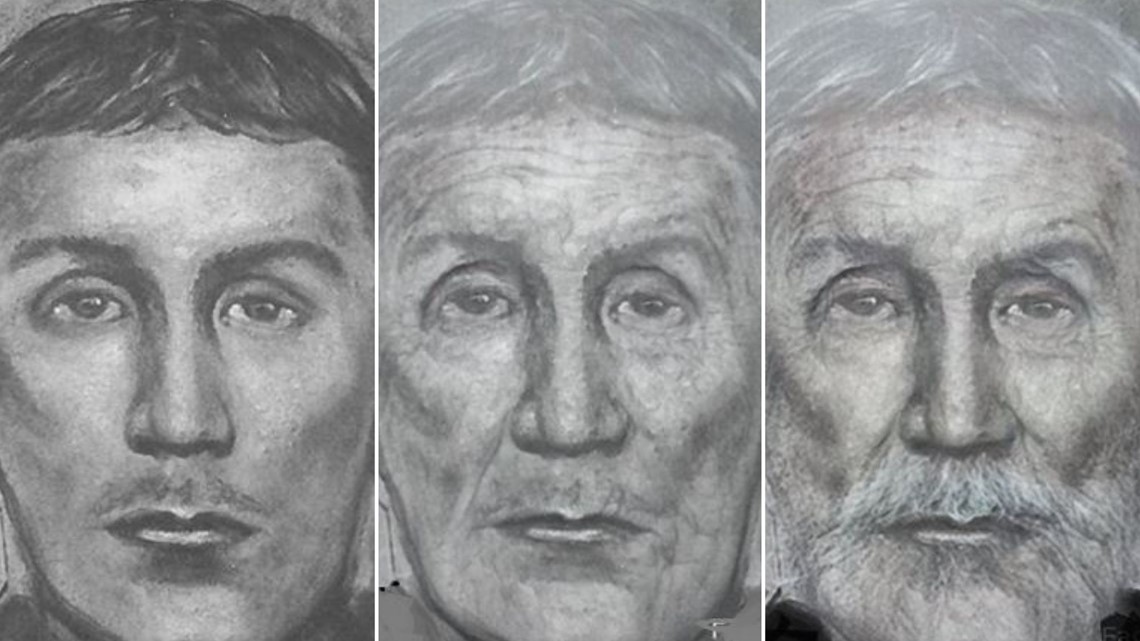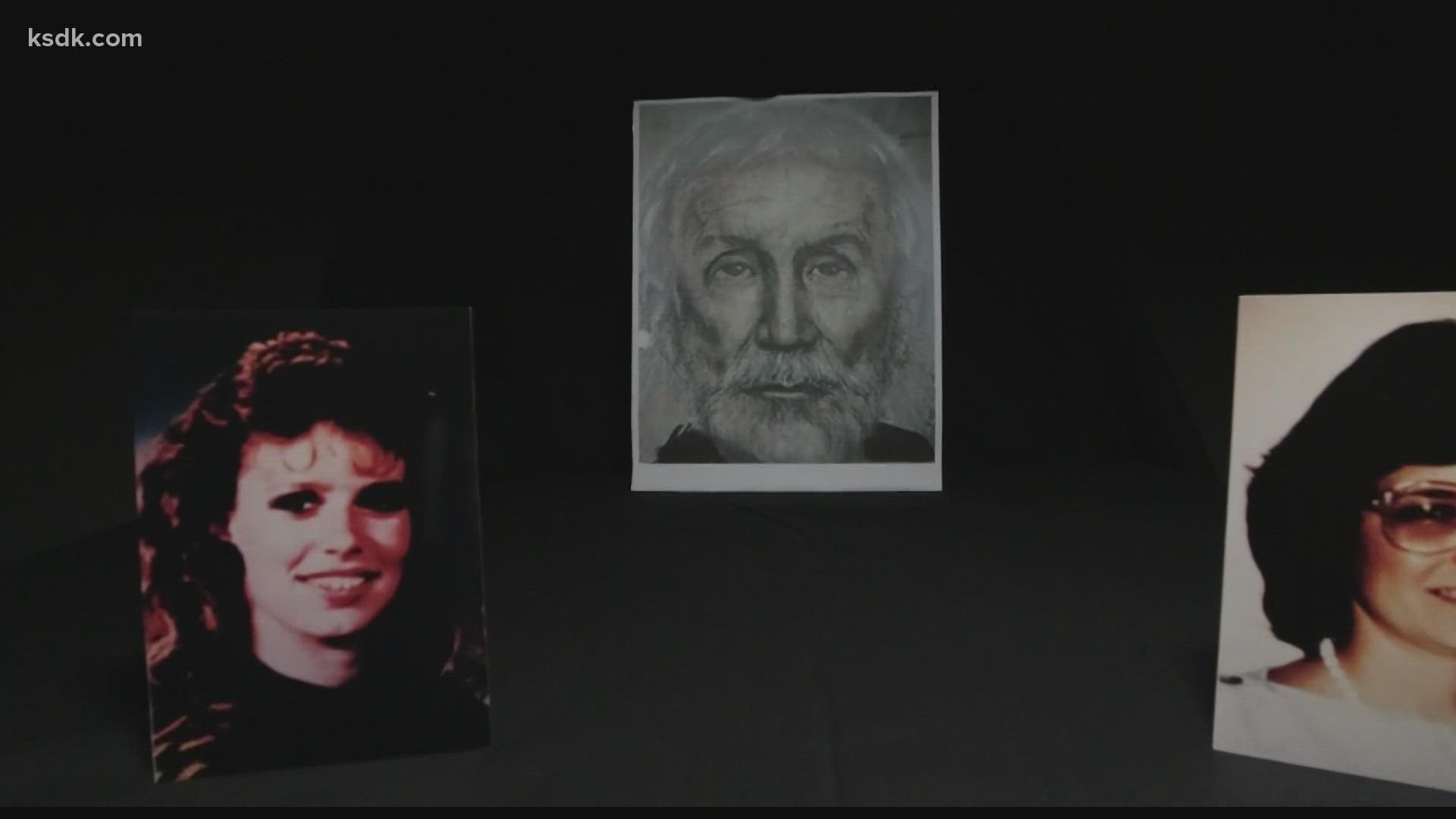ST CHARLES, Mo. — He now walks with a cane. And it's been seven years since he donned a St. Charles police uniform.
On Tuesday, it was as if not a day had passed since Pat McCarrick's first day on the I-70 killer case 29 years ago when a 24-year-old was killed at a Boot Village store near Zumbehl Road.
"At one time, we had 70,000 names in those files," he told a room of about two dozen detectives gathered for the first of a two-day summit. His former department organized the meeting to breathe new life into the investigation.
McCarrick said he had been part of meetings before with detectives from the four police departments spanning three states the killer struck in the spring of 1992.
But this time feels different.
“The big difference now is the dramatic changes in technology, particularly DNA,” he said.
And, there's a new face on the case: Detective Kelly Rhodes. St. Charles Police Chief Ray Juengst has made the investigation her sole responsibility for the next year.
“I’m going to coach her up a little bit on this case,” McCarrick quipped. “I’m depending on her to solve this case.”
McCarrick and Rhodes sat among detectives Tuesday from Terre Haute, Indiana; Wichita, Kansas; Indianapolis, Indiana and Raytown, Missouri, at a conference room in the Ameristar Casino.
The meeting kicked off with every detective introducing themselves along with the department they represented. When it got to McCarrick, he called himself, “just an ordinary citizen.”
St. Charles Police Capt. Ray Floyd interjected, telling the room McCarrick is the most knowledgeable detective his department has on the case.
“And it’s because of the work he and the others did so early on in this investigation that we are going to be able to build a strong case against this guy if we can get a name,” Floyd said.


They compared notes and leads and talked about what evidence should be retested using new techniques in DNA and other forensic sciences.
They also learned how to use a new password-protected database to share information.
Rhodes has been studying many of McCarrick’s notes and, on Tuesday, met him for the first time.
Floyd told her McCarrick would miss his own daughter’s wedding if he had to to be at the meeting.
McCarrick smiled.
“Well, maybe if I had enough notice, I think I’d reschedule it,” he quipped.
McCarrick was working as a detective when 24-year-old Nancy Kitzmiller was shot to death on May 3, 1992.
Her parents said she was just weeks away from passing a background check to work for the Defense Mapping Agency, now known as the National Geospatial Agency.
“She loved cartography,” her mother, Carol Kitzmiller, said.
She was the fifth of six people police believe the serial killer attacked between April and May 1992.


Detectives started documenting every man who had been released from prison around the time of the murders. Every hotel roster along I-70. And every car police stopped along the Interstate near the crime scenes.
Even celebrities weren’t exempt from the probe.
“Kevin Costner’s vehicle was stopped on the highway,” McCarrick recalled. “By the way, I'm convinced that Kevin Costner is not the I-70 killer, but that's just an example of how comprehensive the approach was.”
McCarrick said the chief’s endorsement of the latest push to solve the case sets it apart from other attempts.
“Not all of our fights are with the bad guys,” McCarrick explained. “Sometimes you have to fight the good guys.
“Over the years, we would hear complaints about, ‘You're spending too much time on this case, you're spending too much money on this case. You’ve got nothing else to do, I could use some help in my cases.’ Inevitably, it would reach the boss. They’d call us in and say, ‘You’re spending too much time, it's a cold case. Put it on the shelf.’ And I would say, ‘Yes, sir,’ and I'd go and get the tape.”
The tape was a 911 call one of the victims made as she was dying inside a small retail shop. It's what haunts him.
On it, the victim can be heard telling the dispatcher she thought she had been shot in the neck as her voice trailed off.
“She’s 22 years old, she’s been shot, she knows she’s been shot, she's dying, she knows she’s dying, how she even managed to get to the phone and complete the call,” McCarrick said, pausing. “It's a terrible thing to listen to.”
After playing that tape, McCarrick said his previous chiefs would give him the green light to continue investigating.
He said knowing Rhodes will be assigned to the case fulltime for a year also gives him faith in finding an answer this time around.
“That’s really what you need,” he said. “We didn’t have that opportunity with the resources we had at the time.”
McCarrick gave Rhodes a nod of approval shortly after shaking her hand Tuesday, telling her not to hesitate about calling him should she have any questions on the case.
She thanked him for offering and promised she would be in touch.
And they walked back into the meeting.
Anyone with information about the case is asked to call 800-800-3510, and the department is offering a $25,000 reward for any information that leads to an arrest in the case.

